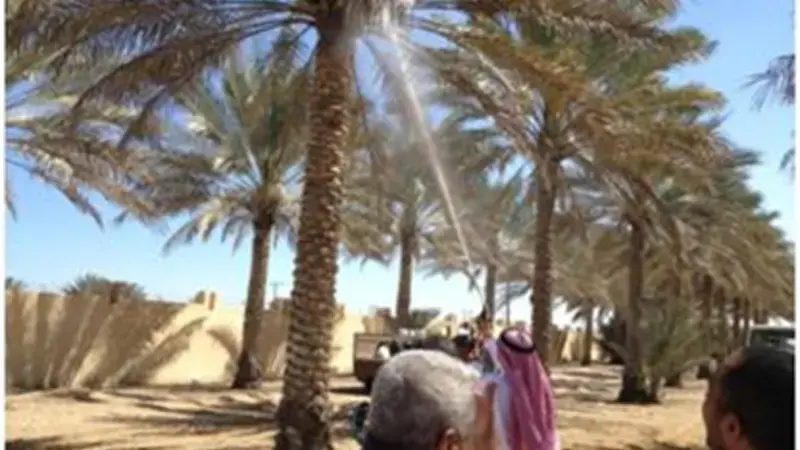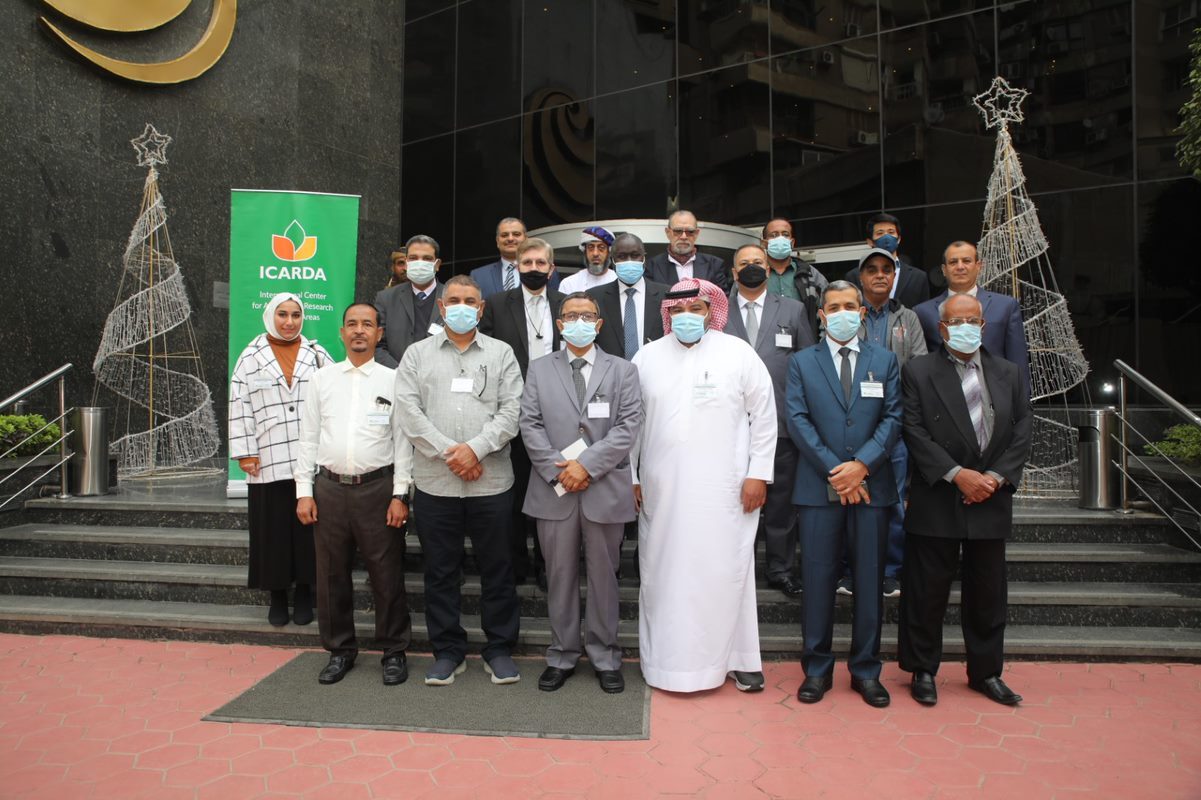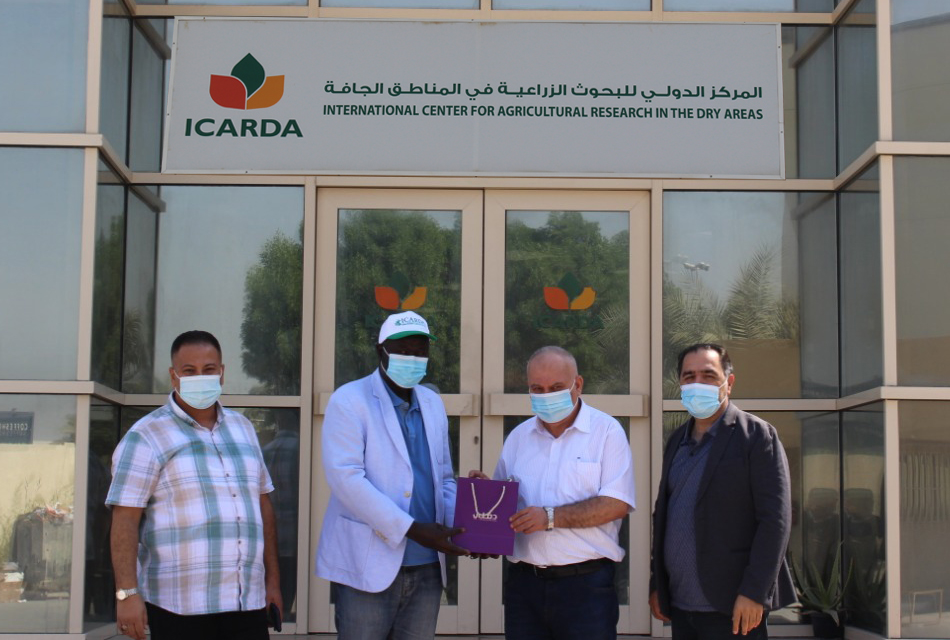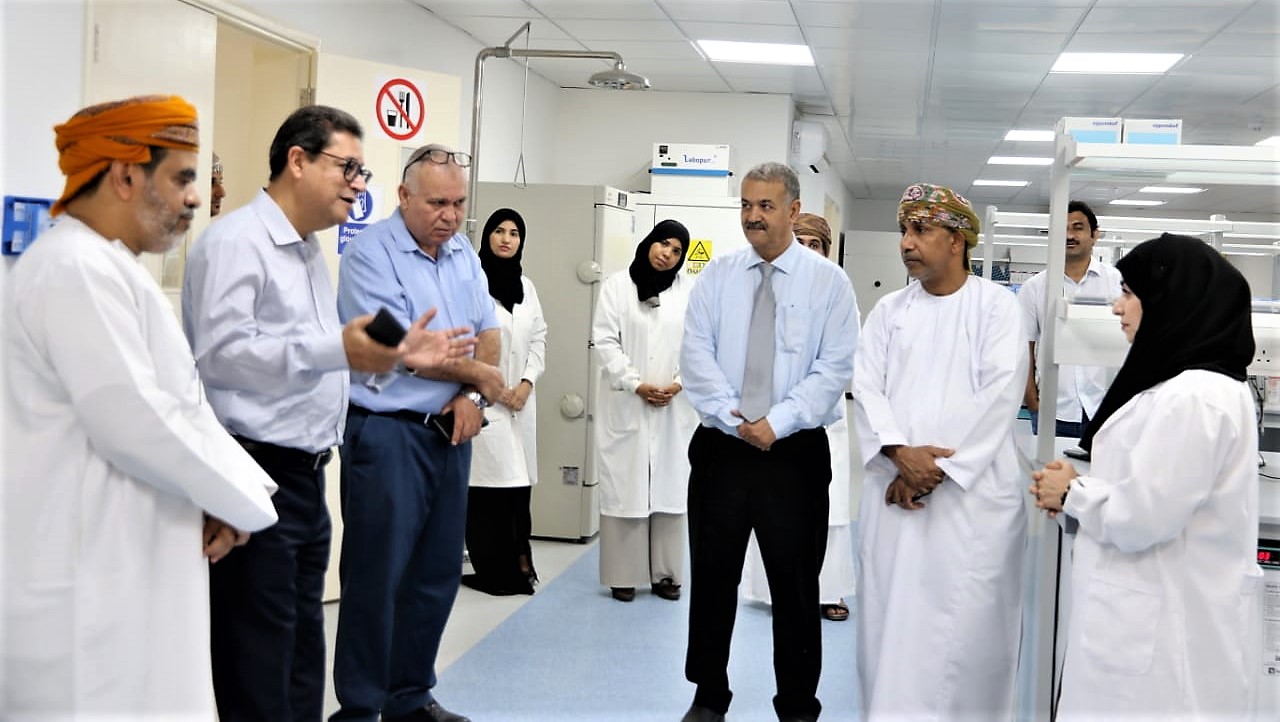Steering Committee of ICARDA's led Date Palm project in Gulf Countries meets in Doha

The ICARDA-led research project “Development of sustainable production systems for the date palm in Gulf Cooperation Council Countries” was created in 2004 with the aim to improve date palm crop management, post-harvest processing and marketing of dates, to exchange and transfer best-in-class technologies regionally and internationally, to conserve and further develop date palm germplasm, and to reinforce capacities for national researchers and farmers in the region.
Throughout the twelve-year project cycle, questions of efficient water use and irrigation technologies in date palm production became more prominent and were added as a joint regional research topic.
The project’s 11th Steering Committee met in Doha, Qatar, in November 2016. The meeting was attended by all committee members coming from Bahrain, Saudi Arabia, United Arab Emirates, Oman, Qatar and Kuwait and chaired by the Department of Agriculture and Fisheries of the Gulf Cooperation Countries General Secretariat, the Representative of the Director General of Agricultural and Animal Research in Qatar and ICARDA.
The project’s most important achievement in 2016 was the dissemination of “liquid pollination” to farmers in the region. Liquid pollination increases productivity and profits for date palm growers. In the date palm, only female trees bear fruit – and must first be pollinated by male trees. Traditional pollination methods are slow, costly, and require trained labor. Liquid pollination – where female trees are sprayed with pollen solution, using a hosepipe – is much quicker, cheaper, and equally effective.
Another achievement in 2016 is drying dates in polycarbonate sheet-covered solar dryers – a post-harvest technique, which is also intended to be used by date palm farmers. The dryers built with a polycarbonate sheet are quite advantageous, as the sheet creates a good greenhouse effect and protects the dates from wind and dust. In addition, the polycarbonate sheet does not weigh much and is easy to bend and cut, thus reducing labor and cost.
In Oman and Qatar, subsurface irrigation techniques led to very encouraging results and allowed to save between 27 and 50 percent in irrigation water. Subsurface irrigation is a highly-efficient watering technique that can reduce water use by 30 to 40 percent. The system consists of drip irrigation tubing planted about five inches below the surface. The water goes straight to the date palm roots, and it does not blow away or run down elsewhere.
In the field of integrated pest management, the production of Trichogramma was launched in 2016 in the Date Palm Centers in the Kingdom of Saudi Arabia and the Sultanate of Oman, which currently produces Trichogramma for biological control against the Lesser Date Moth. This pest attacks date fruits in their early stage of maturity, causing heavy losses in productivity. To reduce the devastating effect of this pest, chemical control campaigns have been used since long time, unfortunately without success. The safe and environmentally friendly egg parasitoids of the genus Trichogramma were successfully used as control agents in biological control programs to regulate pest populations.
Traditional control programs of the Dubas bug also relied on ground and aerial spraying of broad spectrum chemical pesticides which affected the natural balance between the palm pests and their natural enemies and caused many negative consequences such as the development of multiple resistances, adverse effects on natural enemies, in addition to the effect on environment and human health. Trichogramma, as a biological control agent, is a promising alternative to the chemical pest management in date palm production.
Another achievement in conserving date palm cultivars in GCC countries in 2016 was the fingerprinting of all existing sixty cultivars, which will be further developed into a date palm atlas.
The Steering Committee reviewed and approved the project’s 2015-16 budget utilization. Also, the 2017 work plan was presented, discussed and adopted by the members, who expressed the need to continue working as a team to meet the constraints and impediments to the sustainable production of the date palm sector in the GCC countries. The Steering Committee members unanimously decided to submit a proposal for a new project phase 2018-2022 with a focus on the management, methods and technologies that enable to control and improve the efficiency of irrigation water use and the development of ways to prevent and combat pests of the date palm.
A general consensus on the need for better documentation, information and communication of the project’s result was shared between the Steering Committee members. The next Steering Committee will be hosted by Bahrain.



